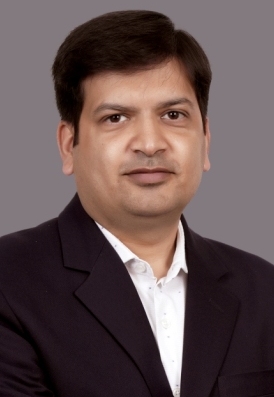
Like you most students don’t even start thinking about career or stream till class X. But, you are supposed to choose a stream right after class X. This stream is going to be there with you for 2 years, and career that may stay for the rest of your life?
Stream choice can seem like a tricky task, but it can be done in a much better way if you are aware of your options and engage in a bit of diligent research and introspection.
Like any small or big decision, the best thing to do is to take one step at a time. First step is to understand which streams are there and what do they entail. Let’s first look at the streams in class 11 CBSE, along with the subjects offered in each.
What are the Streams in Class 11th?
CBSE offers 3 stream options which determine the subjects you will study in your class 11th and 12th and the career options you would ultimately have in the future.
- Science (Medical & Non-Medical)
- Commerce
- Arts/Humanities
Let’s look at each of them in detail.
Science: The Study of the Physical and Natural World
The Science stream, as mentioned above, relates to the study of the physical and natural world through the study of pure sciences and their applications in the real world. From understanding how the laws of gravitation govern planetary motion to learning about the structure of the atom, you will learn about many mysteries of the world around us.
Thus, innate curiosity and keenness to explore, coupled with a logical thinking ability are essential to be successful in this stream.
Subjects in Science:
The science stream has two sub-branches, divided based on the third subject you study:
Medical (PCB) –
Physics, Chemistry, Biology, English, Optional Subject
Non-Medical (PCM) –
Physics, Chemistry, Maths, English, Optional Subject
Optional subjects with science are:
Some commonly opted ones are listed here. Check with your school for availability.
Medical – Psychology, Biotechnology, Mathematics, Economics, Home Science, Physical Education
Non-Medical – Computer Science, Economics, Physical Education, Information Practices, Psychology
Career Options:
PCB Students: From options in the biological and life sciences, such as Zoology, Botany, Microbiology, Biochemistry, to options in allied fields like Nutrition, Pharmacology, Psychology, Biotechnology, etc., there are a lot of options for you to explore. Apart from these, those interested in medicine, yet not willing to go the standard MBBS route can even explore alternate branches of medicine (like Dentistry, Ayurveda, Homeopathy, etc.) or allied medicine fields (like Physiotherapy, Clinical Research, Audiology, etc.)
PCM Students: Popular opinion dictates that Engineering is the only option (or the only suitable option) for PCM students. Well, that is definitely not the case. Non-medical students can build their careers in a wide range of exciting fields such as Architecture, Aviation, Statistics, Defense, Design, Ethical Hacking, Merchant Navy, Computer Applications, Physics, Chemistry, and the list goes on.
Commerce: The Study of Trade and Business
Commerce is a field that relates to the study of business, trade and finance. Commerce students study how goods and services are exchanged, how businesses operate, how financial transactions occur, how the economy of the country works, and more. The indispensability of commerce and its related careers to our day-to-day living makes it a lucrative field to explore and one with a wide choice of career options too.
While you may or may not choose to study Mathematics as part of Commerce, numbers make the base for this stream. A strong hold over calculations and fundamentals of maths, and the ability to deal with large amounts of data are critical elements of success in the commerce stream.
Subjects in Commerce:
Commerce is a stream that students generally have the least idea about since its three main subjects are new to most students. The following are the subjects you are required to study: Accountancy, Business Studies, Economics, English, optional subject.
Accountancy as subject covers concepts related to the managing of the income and finances of a business or an individual. You study topics like transactions, expenditure, cash books, memos, trial balance, trading, profit, etc. and learn how to make a balance sheet.
In Business Studies, you study about the types of businesses and organizations, differences between private and public sector companies, models of business, business finance, international trade, etc.
In Economics, you study about economic development, statistical tools, demand and supply, government budget and economy, etc.
The optional subjects available are: Mathematics, Informatics Practices, Physical Education, Computer Science, Multimedia and Web Technology, Entrepreneurship, Legal Studies, Psychology, etc.
Career Options:
The commerce stream is a popular choice among students looking to build their career in the fields of accounting, banking, finance and related areas. With the right knack for numbers and data, you can build a highly lucrative and financially rewarding career in these fields.
The major and popular career options for commerce students after 12th include Chartered Accountancy (CA), Company Secretary (CS), Actuarial Science, Management, Economics, Bank PO, Investment Banking, Stockbroking, Finance, Entrepreneurship, Law, Hotel Management, and many more.
Humanities: The Study of Human Society and the World
Humanities as a domain has been widely misunderstood and disregarded in the past, but as we complete the second decade of the 21st century, things are changing fast. Not considered as a stream for academically weak students anymore, more and more students are opting humanities for the wide range of subject and career options it provides.
Humanities is a very broad domain that covers areas related to the human society, relationships, culture and systems. These fields help you gain a deeper understanding of how the world and society around us work and how human society, laws and norms have evolved over time. From the study of how people interact in group settings to the study of the legal rights of citizens, everything comes under the purview of humanities.
Students who are aware and curious to learn about world affairs, social issues, historical events and society are the ideal fit to explore humanities as their stream in class 11th and 12th.
Subjects in Arts/Humanities:
As opposed to science and commerce which offer a small window of choice (mainly in choosing the optional subject), humanities offers students plenty of choice in their subjects.
You can choose from a range of main subjects including History, Political Science, Economics, Geography, Sociology and Psychology.
Some schools allow students to take up these subjects in any combination they like, while others provide more fixed choices, such as choosing between Geography and History, Political Science and Economics, etc. Check with your school for the subject combination offered there.
Optional Subjects with Humanities include: Maths, Home Science, Legal Studies, Fine Arts, Physical Education, Media Studies, etc.
Humanities with Mathematics is another combination that is becoming popular with students these days. Keeping maths as your 5th or 6th subject opens up career options for you in Economics, Business and Finance.
Career options:
Many highly lucrative and sought-after career options lie ahead of humanities students. Design, Law, Psychology, Economics, Management, History, Archaeology, International Relations, Hotel Management, Event Management, Mass Communication, Journalism, Civil Services, Social Work, Sociology, Photography, Fashion Communication, Content Writing, are a few of the possible fields available due to the wide applicability of humanities.
Not just that, there are more and more new fields also coming up in the humanities domain, a few fields that did not even exist a few decades back. These include fields such as Gerontology, Public Policy, Habitat Policy and Practice, Gender Studies, Rural Studies and Development, Museology, and Art Restoration, etc.
How to Choose Stream
As you begin the process of choosing your stream for class 11th, start first by learning as much as you can about each stream. Use the information above as a starting point, but go beyond and read the course structure and look at the books for each subject to gain a better understanding of what you will study.
There’s going to be a world of difference between what you have studied up till class 10th and what you’ll be studying in these two years. Thus, it is important that you know exactly what is going to lie ahead (especially important for subjects you have never studied, like Accounts).
Talk to people like your seniors and elder siblings who have been through this to learn about what each of them entails. Many schools also allow you to take a few classes for each subject before you finalise your choice.
Remember that stream selection is a part of ‘Career Selection’. For a successful Career Selection there are many more parameters to consider. Read other blogs on our website to understand that.
About Author

Anurag is a Certified Career Counselor and Coach. He is an Engineer & MBA with 20+ years experience in Education Industry. All of knowledge that you find here stems from first hand experience of coaching thousands of successful students. He has been passionately working in the field of career counseling since 2019.
All subject likes but stream konsi le